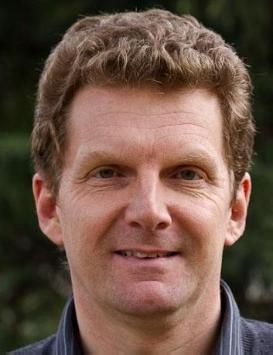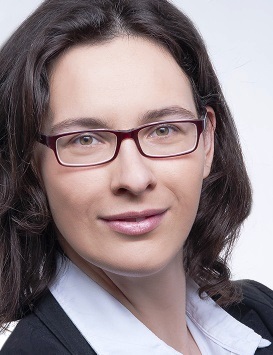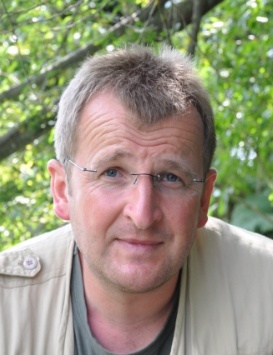BOKU was founded in 1872. It consists of 16 departments, 4 service centres and of experimental fields and forests around Vienna. The University has about 10500 students, 1911 permanently employed researchers and about 720 persons working for the administration.
NOBEL is led by the Department Forest- and Soil Sciences (DWB) and jointly implemented with the Department of Economics and Social Sciences (DES). The staff members of InFER, the Institute of Forest, Environmental and Natural Resource Policy situated at the DES, have profound expertise and a long-standing track record in research on institutions, instruments and processes in forest, environmental and natural resource policies, bring in different scientific backgrounds from both social sciences and natural sciences.
The team members of the Institute of Silviculture ( WALDBAU) situated at the DWB, concentrate research and training on forest ecosystem analysis, ecosystem modeling and forest management – the utilization and protection of natural resources and the provision of forest goods, non-timber forest products and ecosystem services is a main focus in research.
Both have conducted research and consulting projects for various institutions on several levels of governance: international (e.g. IUFRO, UN-ECE, UNFF, FAO, EFI) and EU (e.g. EU FPs, DG Environment, DG Agriculture, DG Research, Eurostat), as well as national (e.g. FWF, ACRP, ÖNB, Provision, Austrian ministries, ÖBf) and regional (e.g. Federal States of Styria, Tyrolia, Southern Tyrolia, Burgenland, Lower Austria).
Main tasks of BOKU in NOBEL
- Lead of WP4 | regarding the analysis of the policy framework and governance settings for the provision of FES
- Project-coordination and project management of NOBEL | WP6

Harald Vacik is associate professor for Silviculture. He is working on the development and application of decision support systems for multipurpose forest management and coordinating the Community of Practice on Forest Management Decision Support Systems (www.forestdss.org). The development and application of Criteria & Indicators for evaluating sustainable forest management at regional, national and international contexts and applying multi-criteria decision making techniques are main research interests in several EU funded projects. He has been actively involved in several European scale (EFORWOOD, MOTIVE, FunDivEUROPE, StarTree) and national wide research projects and initiatives on the development and application of multi-purpose decision support systems for balancing interests on natural resources.
Yasmin Dorfstetter is research assistant at the Institute of Silviculture since 2019. She is acting as project administrator for research and development projects with a focus on payments for forest ecosystem services (NOBEL) and for a dynamic site classification of forests in Styria (FORSITE). During and after her International Forest Ecosystem Management studies she gathered experiences in carbon storage and crediting in Ecuador, short rotation coppices and GIS modeling of biomass potentials in north-east Germany (DENDROM). Afterwards, within the research cooperation for the mitigation of climate change, she was the initial contributor to the Climate and Energy Program of the Federal State of Salzburg working for the Austrian Energy Agency. As a Scientist for Future she also conducts Lectures for Future.


Manfred Lexer is professor for Silviculture and Vegetation Modeling. His main research interests include multi-purpose forest resource planning and decision making, climate change, multi-criteria decision support and ecosystem modelling. He has participated in several EU funded projects. Recently, he has been core partner in the EU FP7 projects MOTIVE which focused on adaptive forest resource management under climate change, and in FunDivEUROPE with a strong focus on the role of functional diversity in forest management. From 2012-2015 he has coordinated the KBBE project ARANGE focusing on multi-functional mountain forest management.
Helga Pülzl is a political scientist and has 15 years of research experience in the fields of policy analysis and indicator research. She has published extensively on indicator research and contributed to a number of research projects that put a main focus on sustainability indicators, including projects funded by the European Commission, Eurostat and national funds. Helga has initiated (alone and with others), coordinated and contributed to ~20 national and international research projects and has published widely.


Bernhard Wolfslehner conducts sustainability assessment and indicators for 18 years, and has rich experience as project leader, leader of international working groups and senior expert and consultant in sustainability research. In 2007, he finalised his PhD on multi-criteria analysis approaches in indicator systems. Since 2012, he is member of the UNECE/FAO Team of Specialists on Monitoring of sustainable forest management and the respective core group on criteria and indicators. He is an invited expert of the EC ad hoc Working Group on SFM criteria, member of the Forest Europe expert group on indicators, and member of the Steering Group/Technical Advisory Group of the FAO project ‘Strengthening Criteria and Indicators for SFM in Policy and Practice’.
Mona Nazari is a master student of the European Forestry Program at the Institute of Silviculture and contributes with her research to the analysis of the governance settings and policy instruments needed to implement business models successfully.


Nelson Grima is a postdoctoral researcher specialized in ecosystem services and human-nature interactions. He works from local to international scale on topics related to ecological economics, ecosystem services, sustainability of natural resources use, policy and decision making, land-use change, stakeholder participation, and communication and knowledge transfer. He has participated in different European-funded, international and interdisciplinary projects.

